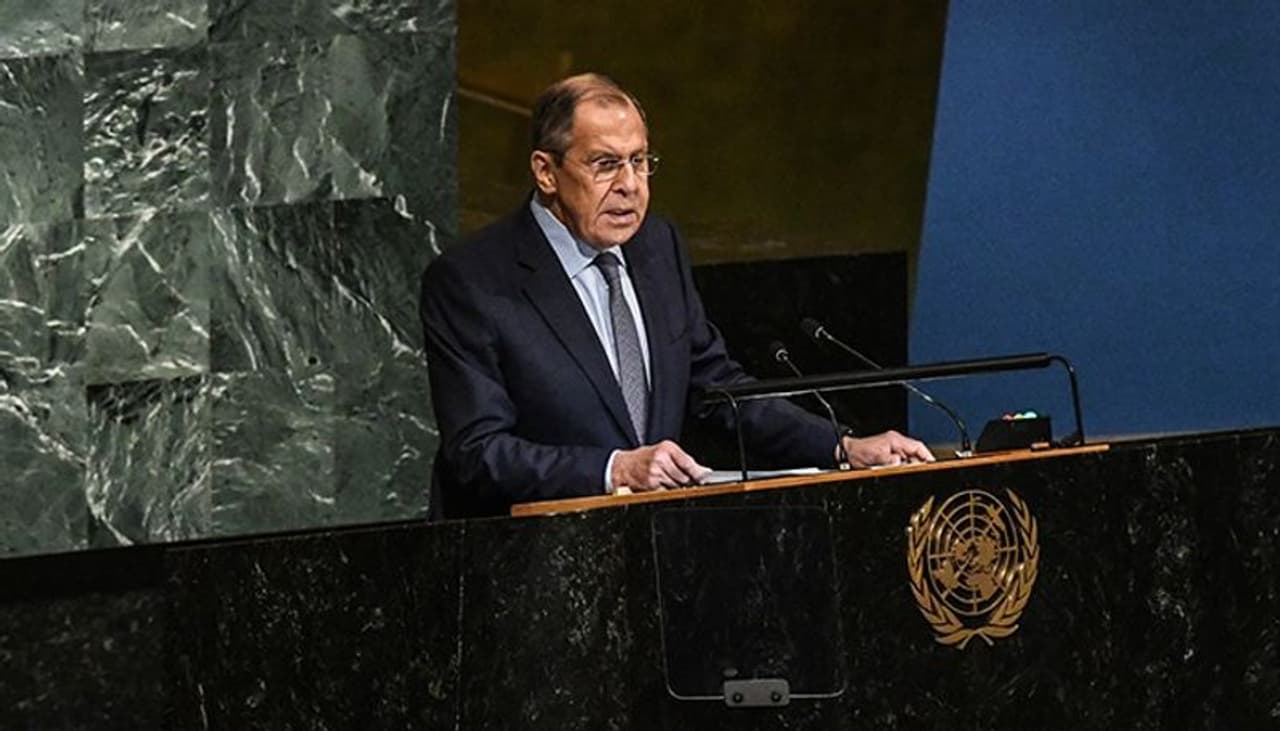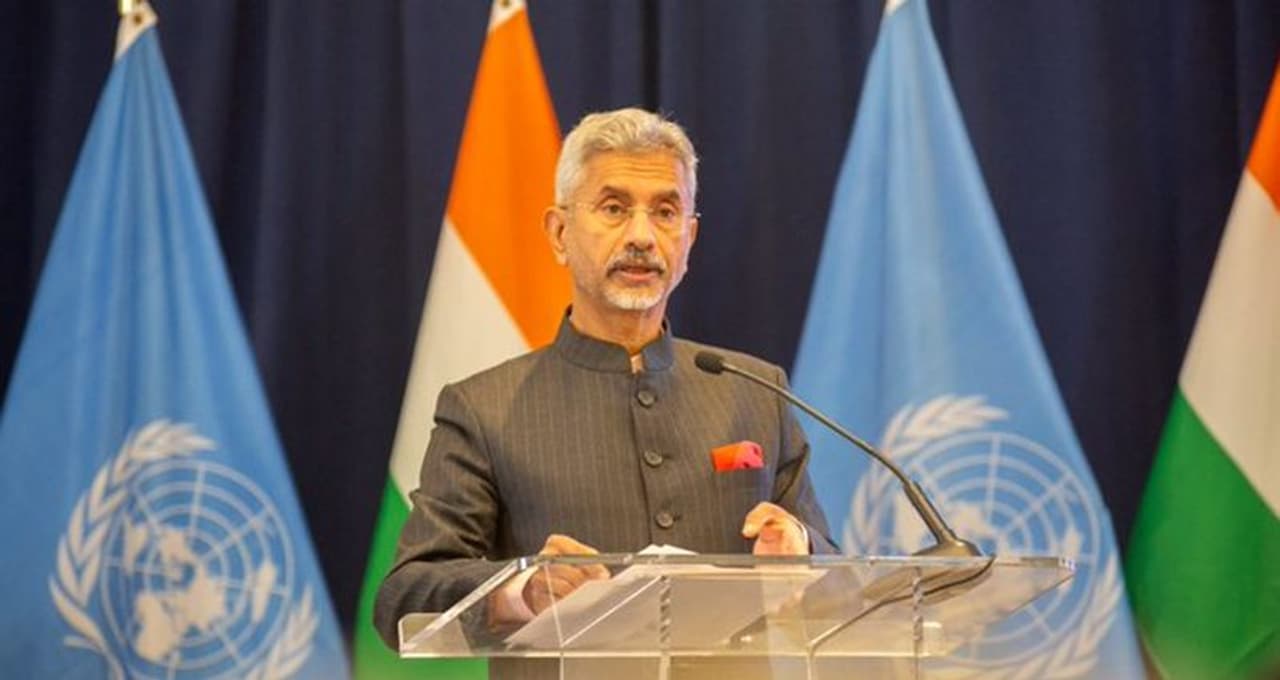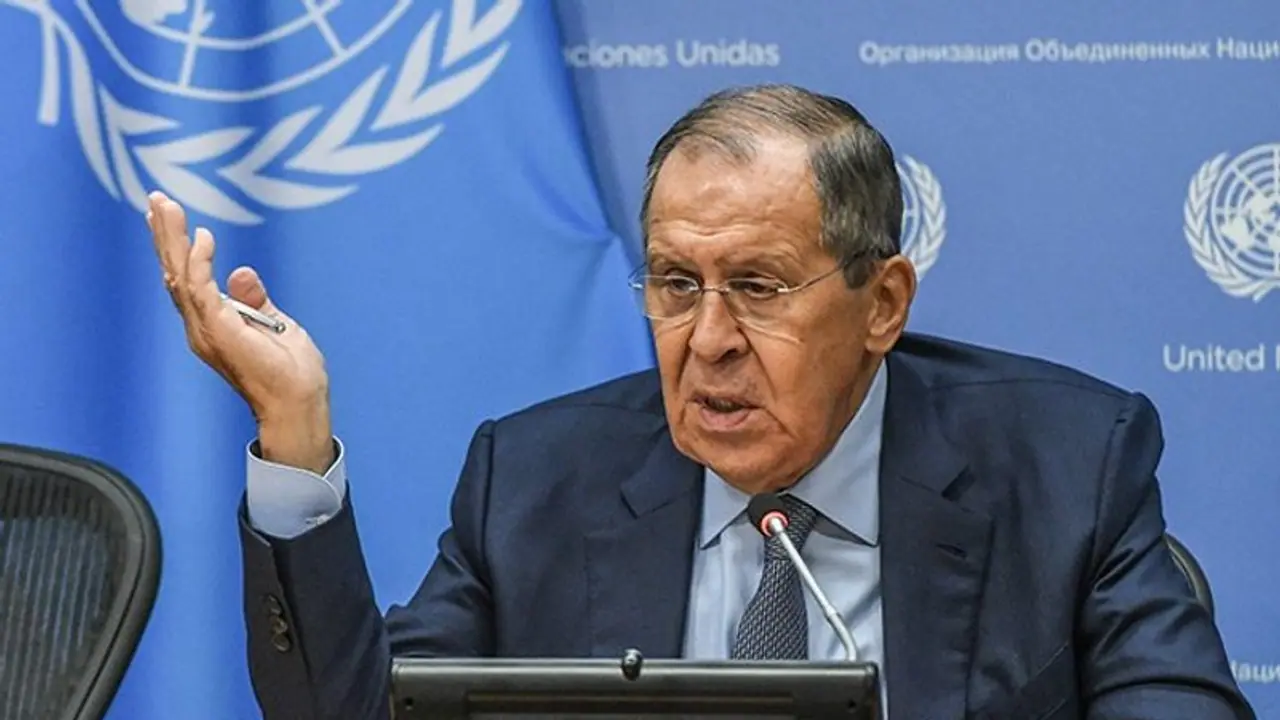During the 77th Session of the UN General Assembly, Russian Foreign Minister Sergey Lavrov on Saturday expressed his support for India, becoming a permanent member of the Security Council.
Russia has declared India and Brazil as 'worthy candidates' for permanent seats on the UN Security Council and referred to them as 'key international actors'.

On Saturday, Russian Foreign Minister Sergey Lavrov expressed support for India becoming a permanent member of the Security Council at the 77th session of the UN General Assembly.
Just an hour before External Affairs Minister S. Jaishankar's speech, Russian Foreign Minister Sergey Lavrov said in his address to the General Assembly that the UN and Security Council must adapt to modern realities.
According to him, Moscow believes that increasing the representation of nations from Latin America, Asia, and Africa will only increase the Security Council's chances of becoming more democratic.
"We note India and Brazil in particular as key international actors and worthy candidates for permanent membership within the Council whilst simultaneously unilaterally and mandatorily raising the profile of Africa," Lavrov said.
India has been at the vanguard of efforts at the UN to press for urgent, long-overdue Security Council reform, highlighting that it is entitled to a seat at the top table of the UN as a permanent member.
Currently, the UNSC comprises ten non-permanent member nations that the UN General Assembly elects for a two-year term and five permanent member nations. Russia, the UK, China, France, and the United States are the five permanent members who have the power to veto any substantial decision.
To reflect the current state of the world, there has been an increasing demand to raise the number of permanent members. He was questioned about this later while holding a press conference at the UN's headquarters on Saturday. South Africa was not mentioned, only India and Brazil.

"I said that we view India and Brazil as strong candidates, given they are leading international players, as strong candidates for permanent membership at the Security Council with the condition that at the same time, in the same way, the profile of Africa will be raised," Lavrov said.
"I mentioned India and Brazil for a single reason. They have long officially advanced their candidatures. As for South Africa, the Republic of South Africa, this step has not been put forward," he said, adding that Members of the African Union are committed to the Ezulwini Consensus.
He added that addressing the question of expansion of the Security Council without reflecting the interests of Africans is not possible.
"Again, I emphasise that we're talking exclusively about expansion of the Security Council membership with the representatives of Asia, Africa and Latin America. Because if we had to talk about an additional inclusion in the Security Council of Western countries, well, that would be humorous for a number of reasons. I will set aside the fact that they are all hostile to the Russian Federation and the People's Republic of China," he noted.
Also read: On PM Modi's 'not era of war' message to Putin, here's what the White House said
Lavrov remarked if political assessments were to be set aside, what new would any additional western country bring to the Security Council? He added western countries could provide absolutely nothing to the Council, and "they are all following the orders of the United States.
Lavrov said next year, with the addition of Japan to the Council as a non-permanent member, there will be seven countries representing the western group in the 15-nation Council. He said there is not an iota of difference between the policy of Japan and that of the United States.
India is currently halfway through the second year of its two-year term as an elected non-permanent member of the UN Security Council. India's tenure at the Council will end in December, when the country will also preside as President of the powerful UN organ for the month.
Russia major partner of India in many domains, discussed range of issues with Lavrov: Jaishankar
Describing Russia as a "major partner in many domains", External Affairs Minister S Jaishankar has said discussions with his counterpart Sergey Lavrov focused on "bilateral cooperation" as well as the conflict in Ukraine.
"We discussed a number of issues. Some part of my meeting was focused on our bilateral cooperation because Russia is a major partner in many domains," Jaishankar said.

He was responding to a question by PTI on his meeting with Lavrov as he spoke to a group of Indian reporters here Saturday after wrapping up the New York leg of his visit to the US with his address to the UN General Assembly high-level session.
Just hours before his address to the UN General Debate, Jaishankar had a bilateral meeting with Lavrov on the margins of the high-level session. "A wide-ranging conversation with FM Sergey Lavrov at #UNGA 77. Discussed our bilateral cooperation. Exchanged views on Ukraine, G-20 and UN reforms," Jaishankar had tweeted.
Responding to the question, he said while "obviously" there are big issues, which focus both the Russians and the rest of the world, the relationship has to address its own requirements, processes and objectives.
"We spend some time on the bilateral side, where things are, taking stock," he said, adding that they also spoke in "some detail" about issues related to Ukraine.
"A lot of it was he briefed me about various developments from the Russian perspective. I also shared with him what I picked up from some of the others. So that was a back and forth conversation," he said.
He said there was also a discussion on the G-20, with India beginning the G-20 presidency this December. "Russia is very much at the centre of debate where G-20 is concerned. And finally, we spoke about the UN reform."
The meeting in New York is the fourth between Jaishankar and Lavrov this year, including in Bali on the sidelines of the G-20 foreign ministers' conclave in the Indonesian city of Bali and when Lavrov was in New Delhi earlier this year.
(With inputs from PTI)
